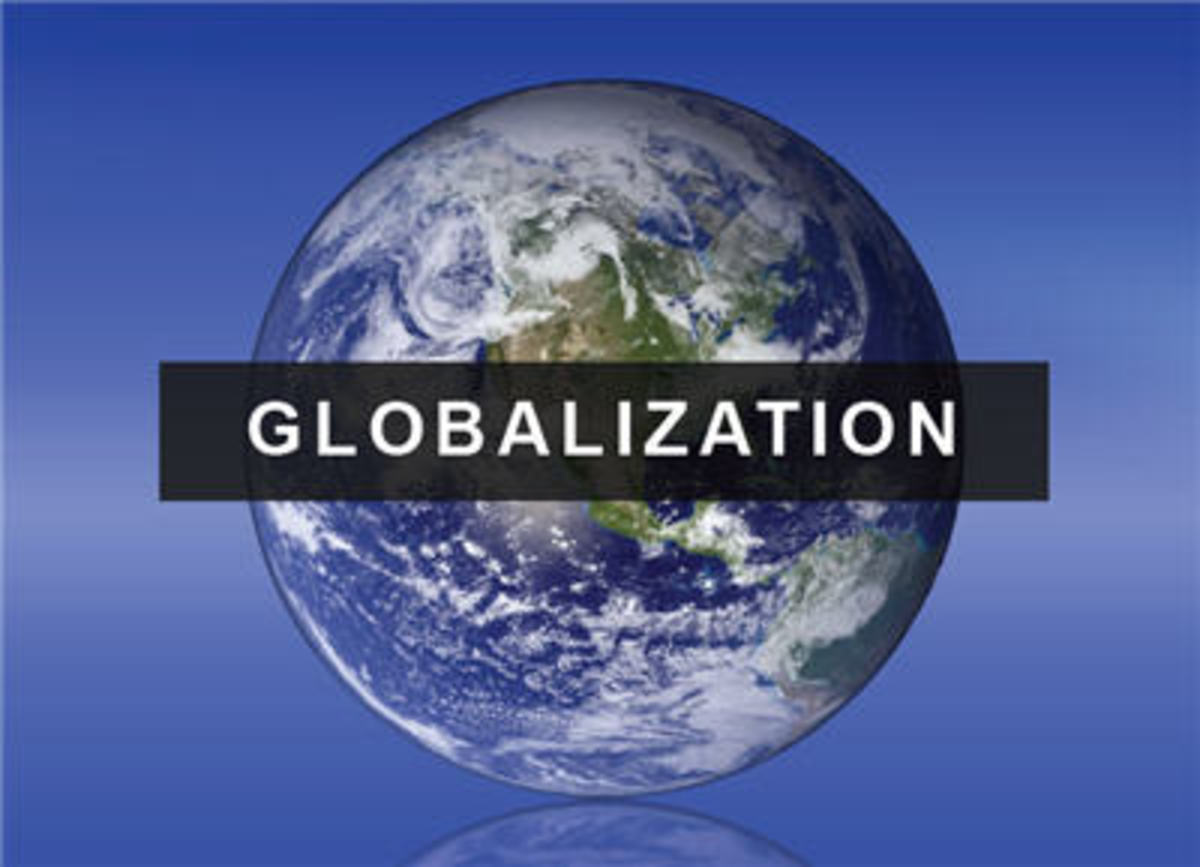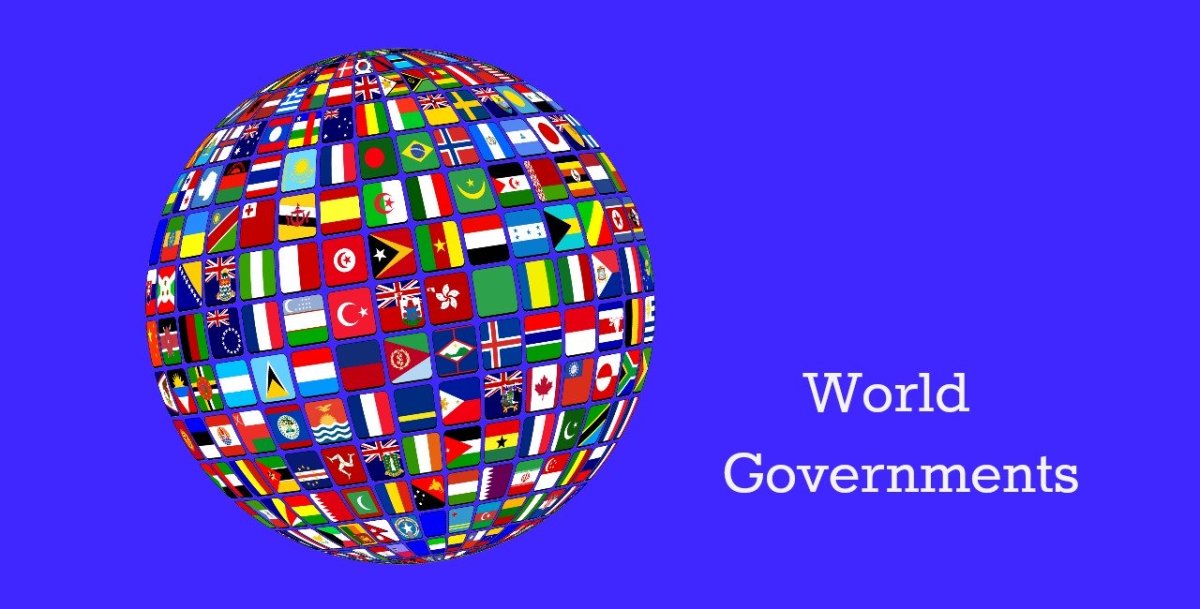Countries, Economies, Governments Benefits from Globalisation
The New Economic Policy Consensus states that in order to run a country successfully it is important to embrace three main elements; openness towards international trade, macroeconomic stability and limited government intervention (IMF, 1997).Openness to international trade refers to a fair free trade system where tariffs, quotas and embargoes aren’t heavy. Openness to free trade will increase foreign direct investments and labour mobility. Macroeconomic stability refers to price stability, price levels should not increase or decrease by more than 2 % according to the ECB. Price stability is important because it affects the effectiveness of the market system. Limited government intervention is the only way for markets to perform effectively. Where there is no government intervention, there is a high level of competition which means no single company will have a monopoly.
In the globalisation process if we look at the benefits of international trade, it is clear that once a country reduces trade barriers and embraces liberalisation it can then become profitable. This statement can easily be backed up and we don’t even have to look too far, Ireland is a great example of this. When Ireland joined the EU, Ireland went from being ‘the sick man of Europe’ to the ‘Celtic Tigers’ (Leigh, 2009). Irish businesses gained access to a free market of over 490 million people. The openness towards free trade attracted foreign direct investments, which grew from 16 million in 1972 to over €30 billion. Farmers in Ireland gained over €44 billion between 1973 and present. (European Commission, 2010) How can anyone tell me that forward integrations and liberalisation does not bring substantial benefits? Yes the country might be in a big mess now however we all know this is not caused by globalisation. In fact it is because of globalisation that the country is seeing growth in exporting at present, exports are up by 8 % and globalisation is also the reason why it is possible for Irish people with specialist skills to migrate and seek employment all around the world (Irish Exporters, 2011).
For anti-globalist who are adamant that globalisation does not benefit countries/economies/government, let’s use Nike to reemphasise the positive impacts of globalisation Vietnam. These same anti-globalist argue that Nike are involved in child labour, if they conducted their research properly they would have found that Nike has a rule to not employ people under 18 for footwear and under 16 for apparels. Nike even encourages entrepreneurship by giving out micro loans (Norberg, 2006). I believe encouraging growth and freedom is a benefit promoted by Nike in Vietnam. Some might say these are benefits for the people not the country but I say what is a country without people? Reducing unemployment rates by creating jobs to me is a benefit. Keeping workers happy by paying them over 8 times the local wage rate is a benefit thus increasing the income capita per person. Johan Norberg in an interview reveals to us how a worker who after 2 years became a supervisor and now earns over 2 million per month, the simplest way to explain this for anti-globalist is that the more money a person makes then the more they spend. I believe that anti-globalist fail to understand that globalisation provides more long term benefits (Norberg, 2006). Going back to the Taiwanese economy, it is clear that these sweatshops were necessary stages in the industrialisation process. Globalisation benefited this economy to such a degree that it went from being as poor as Kenya to being as wealthy as Spain in under 50 years!
Here are some additional benefits; School enrolment, infancy mortality, life expectancy and literacy have drastically improved in the last 50 years. In low and middle income areas the life expectancy went from 46 to 63. Infancy mortality went from 149 to 71 per 1000 births. The adult literacy level went from 46 to 61 percent. Since the end of the Cold War democracy has spread throughout the world and peaceful settlements were made from Asia to Northern Ireland. Between 1986 and 1996 the number of democratically elected governments rose from 42 to 61% (Streeten, 1998).
AGRAWAL, Usha. 2008. Globalisation Poverty and Culture. Delhi: Global Media. Available from World Wide Web: http://0-site.ebrary.com.www.library.itcarlow.ie/lib/itcarlow/docDetail.action?docID=10415972&p00=benefits+of+globalisation
ANDREW D. KIDD, Alan Tulip and Charles Walag. 2001. Benefits of Globalisation for Poor Farmers. [online]. Available from World Wide Web: http://www.agridea-international.ch/fileadmin/10_International/PDF/RDN/RDN_2002/RDN_2001/5_Uganda.pdf
BARDHAN, Pranab. 2004. Does Globalisation Help Or Hurt The World's Poor? [online]. [Accessed 10 November 2011]. Available from World Wide Web: <http://www.unep.org/civil_society/gcsf8/pdfs/BardhanDoesGlobalizationHelp.pdf>
COLE, Mike. 1998. International Studies in Sociology of Education. Globalisation, Modernisation and Competitiveness: a critique of the New Labour Project in Education. 8(3), pp.320-328. Available from World Wide Web: http://0-www.tandfonline.com.www.library.itcarlow.ie/doi/pdf/10.1080/0962021980020028
EDWARD GOLDSMITH, Jerry Mander. 2003. The Case Against Global Economy & For A Turn Towards Localization. Welling: Earthscan Publications.
GILPIN, Robert. 2000. The Challenge Of The World Global Economy Capitalism. Oxfordshire: Princeton University Press.
Globalisation is Good. Google videos. Directed by Johan NORBERG. Channel 4. 2006. Available from World Wide Web: http://video.google.com/videoplay?docid=5633239795464137680
LEVITT, Theadore. 1983. Harvard Business Reviews. The Globalisation Of Markets, 1 may. Available from World Wide Web: http://www.vuw.ac.nz/~caplabtb/m302w07/levitt.pdf
PAUL STREETEN, Mohin S Khan. 1998. Globalisation: Threat or Opportunity. Washinton, D.C. Available from World Wide Web: http://www.pide.org.pk/pdf/PDR/1998/Volume4/51-83.pdf
SKENE, Leigh. 2009. Impoverishment of Nations : The Issues Facing the Post Meltdown Global Economy. Londaon: Profile Books. Available from World Wide Web: http://site.ebrary.com/lib/itcarlow/docDetail.action?docID=10387141








